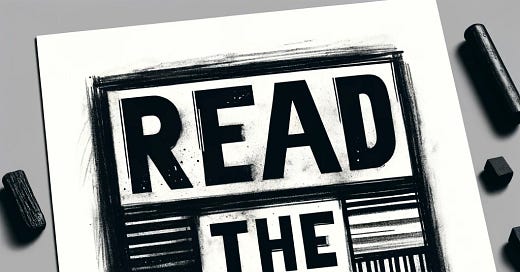I have a strange sense of humor. You might too. There’s an actual name for it. This is a post from the archives of 2024. Please like and share!
I've had a lot of strange moments as a pastor over the years, primarily working in the area of grief and bereavement. Having conducted more funerals than I can count, I've had my share of what I think are humorous situations.
The operative words are "what I think." My wife told me long ago that I can't regale people at parties with stories about funerals because it makes people uncomfortable.
When I was younger, I wasn’t able to read the room and see that I was making people feel uneasy. What's worse is that what I thought was funny, they didn't! They looked at me as if I was a bit sick, twisted, and maybe even dark. No one wants to get that reputation, especially if you work within the religious realm.
Recently, I was reminded that there's an actual term for this type of humor for those of us who work in situations where we deal with death, trauma, etc. The correct term is "gallows humor," which means exactly what it says. It originated around 1905, the best I can determine, and it had to do with people who were facing death and execution and made light of it.
Just this week, I was talking with a friend of mine who is a retired firefighter. I've known him for years. I relayed the story about the time a child had their finger cut off in the door jamb at our preschool. After the little boy had been taken to the hospital, I found the amputated finger stuck in the door frame. I grabbed some gloves, put the finger on ice, kept it as sterile as possible, and rushed it to the hospital. It took weeks to find out if the sewed-on finger would make it. Thankfully, it did. My friend then told me of a similar story when they had found a severed finger, but it was too late to have it reattached to the patient. So, they did what anyone with "gallows humor" would do. They placed it in a Ziploc bag, placed it in the freezer at the fire station where it stayed for three years and shocked everyone who opened it!
Here's the thing: If you recoiled at that story, you probably aren't blessed, and simultaneously, cursed with gallows humor. And that's likely a good thing. It means you haven't been overly exposed to people's trauma, grief, or other painful situations.
John Lovell, from The Warrior Poet Society, refers to gallows humor as graveyard humor. He's a former Army Ranger and tells this story on his blog about a mission they were preparing for:
"We were gearing up, doing our pre-mission checks, rehearsing the battle plan, and the guy looked at me, smiling:
'Man, I think it'll go all right, but I just got a bad feeling that you're not going to make it.' And then silence. I was a little shocked. And then I laughed. It was the worst possible thing for a soldier to say to a soldier right before combat–and that's why it was hilarious.
The poignantly inappropriate horrific humor from someone else who understands–that's called Graveyard Humor. All the military, police departments, all EMS and anyone that's ever had a really dangerous job or been around a lot of death–they all share a form of graveyard humor.
To people on the outside, it looks incredibly insensitive. It looks disrespectful and crass–because it is. And it serves a very important purpose.
While it may not work in most daily-life circumstances or around most people, when it comes to the people in the dangerous professions, it can help you weather the storm."
That may make you uncomfortable, too. It could be unnerving if you don't use graveyard humor and hear someone who does. Just know that there's likely more to their story when you hear it. They may have seen a lot and dealt with a lot, but it's not that they're better than you are. They're just different than you.
And if you're prone to using graveyard humor regularly, be careful when you do so and check your surroundings. We all know it's a coping mechanism, but it's a coping mechanism for those of us who understand and need it. Others won't get it, and that's okay.
In the end, there's a lesson for all of us. Read the room, see who's there, and know your audience before you ever utter a word. That's just good advice for life in general.



